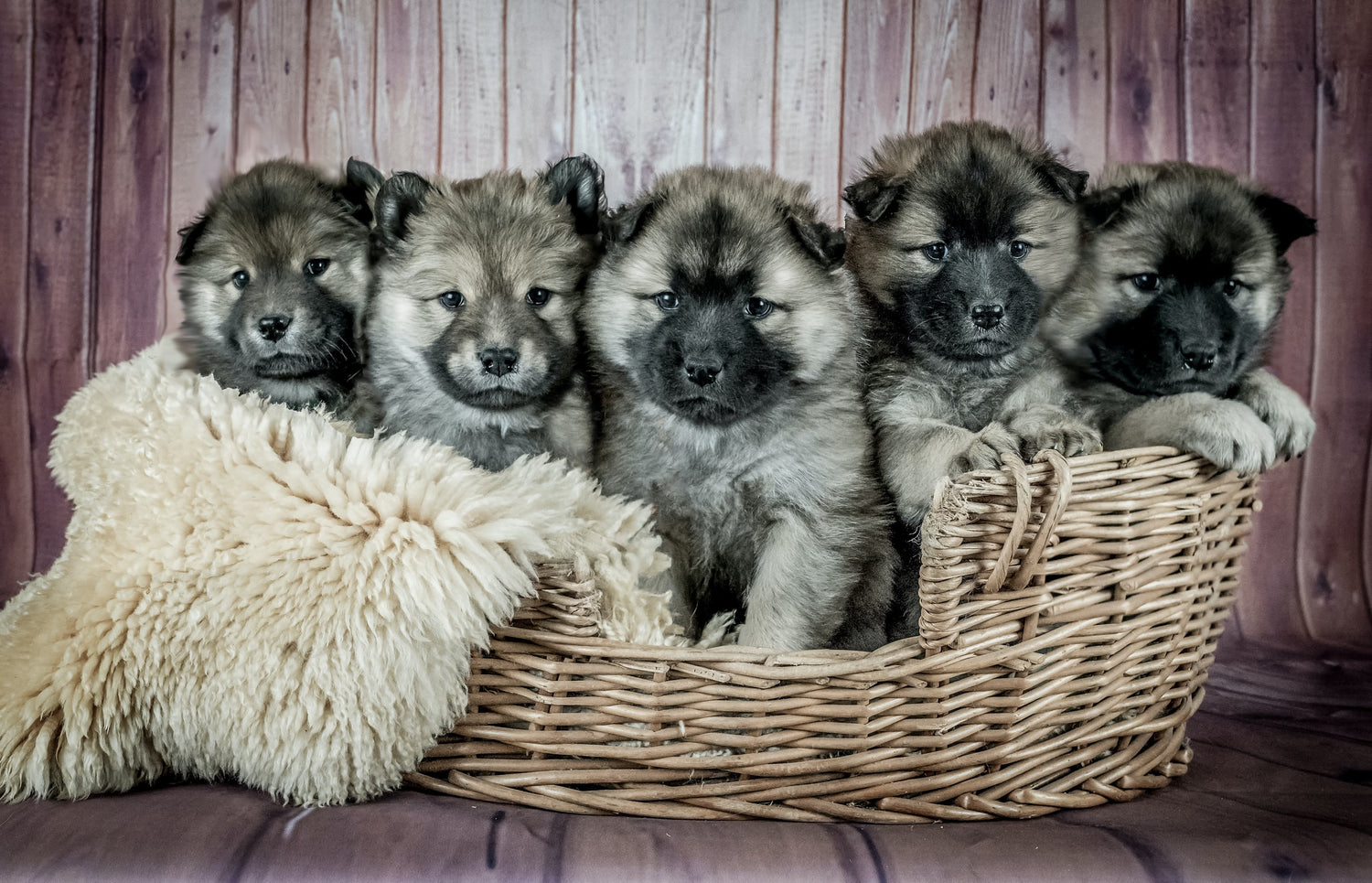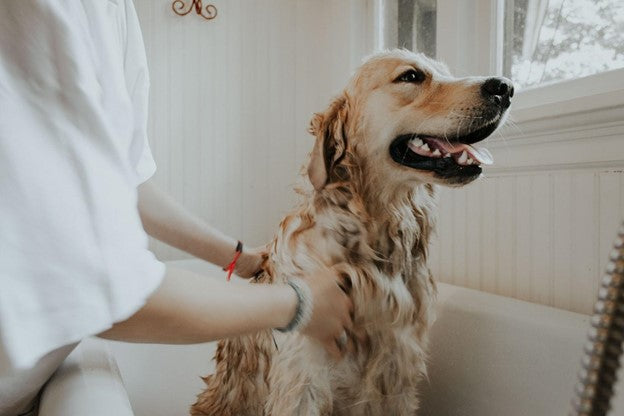Bringing home, a furry companion is a big decision for the entire family.
If you are looking to add a furry friend to your life and prefer to use a breeder, you need to locate one that uses responsible breeding practices who can give you a healthy, well-conditioned puppy, if you are not sure how to start the process; we got you covered! In this post, we will share the top ten things to look for before selecting a breeder.
Finding the perfect fit for your family environment, is advantageous so do your homework carefully to find the best puppy breed to match your lifestyle.
Selecting a trusted breeder is the best way to end up with a healthy puppy and reduce the chances of pre-existing conditions and genetically predisposed challenges. Once you have located a desired breeder you will need to get to know them.
An in-person meetings at their home or kennel is helpful in identifying the living conditions, and care provided by that breeder. Another advantage is to get a chance to meet the sire (Dad) and dam (Mom) of the litter. You can see much about the quality of the breeder from the living environment and care provided to the animals.
If an in-person meeting is not feasible, ask to video chat with them so you can still get an idea of what the kennel is like. You can also ask to speak to people who have gotten puppies from previous litters to ensure you are making the best choice.
Follow these tips for finding the right pup from a breeder.
1. Registered Kennel Clubs
There are several choices, some (but not all) commonly seen are listed below but most commonly known will be the American Kennel Club. Check out the AKC for Breeders of Merit. These breeders follow specific requirements and health screening for the animals. They have histories of being well know, throughout the industry, and have bred dogs that earned titles. If you are looking at a puppy registered to one of these organizations, chances are that you get a healthy, well-adjusted puppy with secure bloodlines.
2. Reputation
Ensure that you are getting your puppy from a reputable breeder. Most trusted breeders earn their name and reputation by providing healthy puppies to pet parents, resulting in references. Good breeders always take exceptional care to breed their puppies for good health and temperament.
3. Documentation for Kennel Registry
Good breeders should offer a guarantee against genetic defects. A responsible breeder should present a pedigree (documentation that mentions the pup’s parents and grandparents) and proof of screening by a veterinarian for genetic problems such as hip dysplasia, elbow dysplasia, eye problems, heart conditions, and such. Also, the breeder should provide documentation of the registration papers made out in your name.
4. Questions to Ask
When getting a new puppy, you often need to contact the breeder and have your questions answered. A good breeder should never be afraid to answer any of your queries.
Ask the breeder
- How long have they been in the business?
- How often do they breed the parent(s)?
- How often do they feed, clean, and play and walk with the dogs?
- Can they provide references from past adopters?
- Do they have pictures of previous litters?
- What is the transition routine?
- How soon do they release the pups to their new family?
- Do they do any research or have any qualifications for the new homes they place their puppies?
- Will they provide a going home kit, or a list of items suggested prior to the pup going to their new family?
They inform you of the pup’s diet and daily routine to minimize complications when introducing the pup to a new home.
5. Environment and Care
You need to ensure that the sires and dams of litters and puppies are in good health. It is imperative that the breeder provides a clean, comfortable, and safe living environment for the animals.
Always visit the puppy before bringing him/her to your home when possible. In this way, you will get to know the kind of conditions puppies are in contact with. They focus on early socialization, before puppies go to new homes. Videos of how the litter was raised can be helpful too!
6. Separation Age
Studies show that puppies removed from their parents and littermates too young are more likely to exhibit problems like fear or aggression towards other animals.
Responsible breeders know this and will not separate puppies from the mom until they are at least 8 weeks old. Smaller breeds may be even later. They also focus on early socialization before puppies go to their new homes.
7. Rehoming Policy
A good breeder will be willing to take the puppy back. In unforeseen circumstances, you may need to give up the dog later. A trusted breeder will want the dog to come back to them rather than ending up in shelters or undesirable conditions.
8. Breed Focus
Most trusted breeders focus on one or two breeds. These breeders will also have their own pets of same breed and be deeply knowledgeable about the breeds they raise.
9. Guidance
Educated breeders will tell you about defects and faults in a breed. They will be happy to discuss what you can expect in the puppy now and years to come. An explanation of daily care and approaches to diet, training or grooming are often offered, making sure the breeder knows you are going to care for the pup the way they themselves would.
10. Screening
A trusted breeder screens potential pet parents to ensure that the puppy is the right fit for you. They want to know that their pups will be in safe homes for their entire lives. A breeder who asks for a veterinarian reference and/or interviews you to make sure you can provide a loving “furever” home is another good sign of a qualified breeder.
Paperwork provided by breeder:
You should be provided with the following paperwork:
Contract of sale: The breeder will give you a contract of sale agreement. (receipt)
- Microchipping: The breeder should give you the microchip transfer paperwork. The document should have the microchip number on it.
- Registration documents: The Kennel Club Registration document if it is a registered puppy.
- Vaccination certificate: The breeder should provide a vaccination record and should tell you if they are up to date with the required immunizations and identify when the next vaccines are due.
- Worming and other health records: They should also provide the health records and worming records for the puppy and his parents. This may help you to see if there are any genetic diseases in the puppy or his parents.
Last thoughts
Transparency is key here – the breeder should have nothing to hide and be willing to answer any and all questions or concerns you may have.
Having an adorable puppy running around your house is always fun. The love that a pup can give you is simply priceless. But every puppy is individual and a little different. So, what goes best for one pup may not work for the other. Diet, physical activity, and mental stimulation requirements vary with the pet's breed, age, gender, and overall temperament.
Keep in mind that love and care are extremely important for pets. Once you have found someone you trust, someone who fits your criteria and has met all your requirements, go pick out your puppy.
Happy petting!



